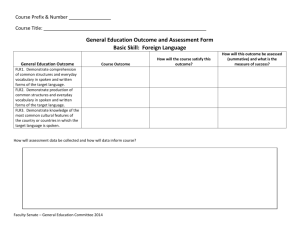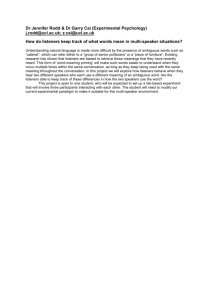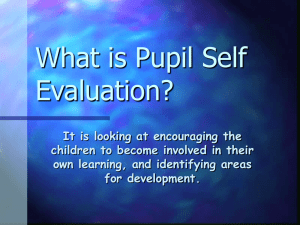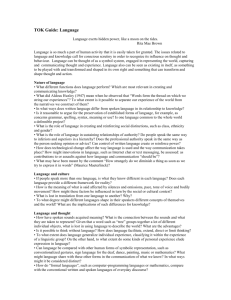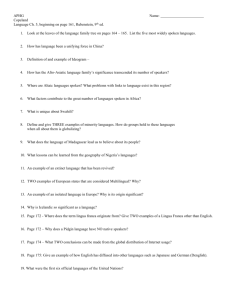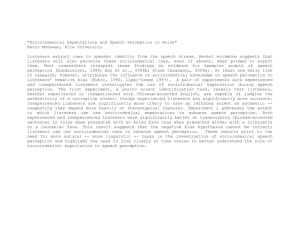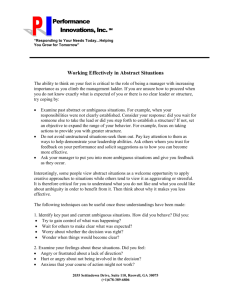Melissa Baese-Berk - Linguistics
advertisement
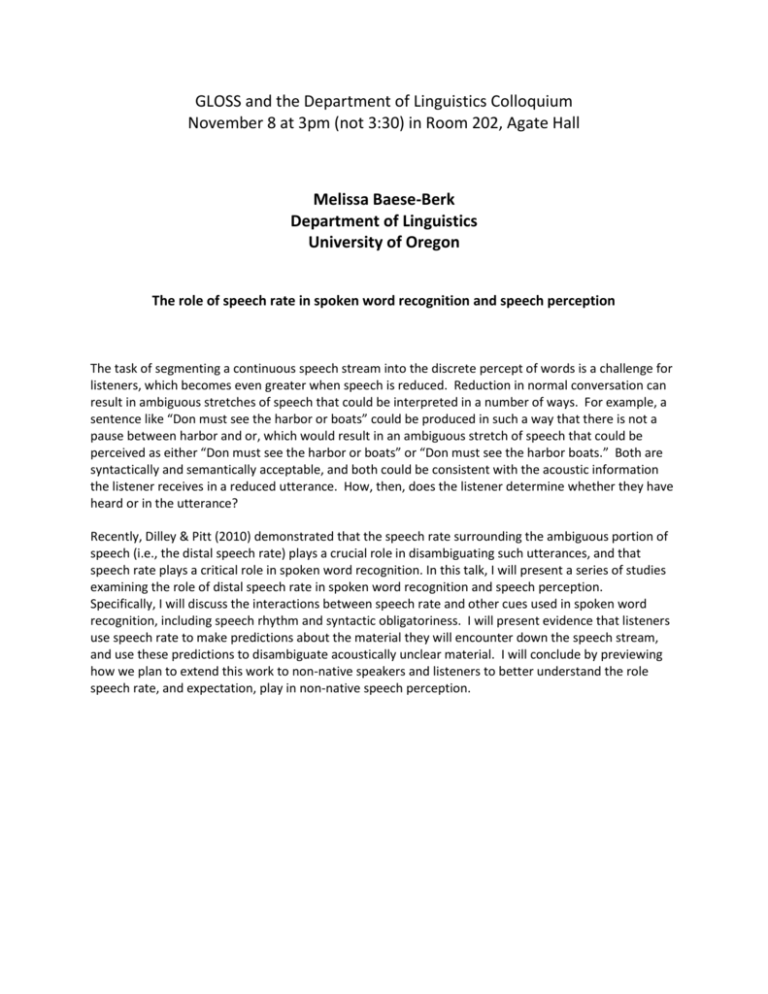
GLOSS and the Department of Linguistics Colloquium November 8 at 3pm (not 3:30) in Room 202, Agate Hall Melissa Baese-Berk Department of Linguistics University of Oregon The role of speech rate in spoken word recognition and speech perception The task of segmenting a continuous speech stream into the discrete percept of words is a challenge for listeners, which becomes even greater when speech is reduced. Reduction in normal conversation can result in ambiguous stretches of speech that could be interpreted in a number of ways. For example, a sentence like “Don must see the harbor or boats” could be produced in such a way that there is not a pause between harbor and or, which would result in an ambiguous stretch of speech that could be perceived as either “Don must see the harbor or boats” or “Don must see the harbor boats.” Both are syntactically and semantically acceptable, and both could be consistent with the acoustic information the listener receives in a reduced utterance. How, then, does the listener determine whether they have heard or in the utterance? Recently, Dilley & Pitt (2010) demonstrated that the speech rate surrounding the ambiguous portion of speech (i.e., the distal speech rate) plays a crucial role in disambiguating such utterances, and that speech rate plays a critical role in spoken word recognition. In this talk, I will present a series of studies examining the role of distal speech rate in spoken word recognition and speech perception. Specifically, I will discuss the interactions between speech rate and other cues used in spoken word recognition, including speech rhythm and syntactic obligatoriness. I will present evidence that listeners use speech rate to make predictions about the material they will encounter down the speech stream, and use these predictions to disambiguate acoustically unclear material. I will conclude by previewing how we plan to extend this work to non-native speakers and listeners to better understand the role speech rate, and expectation, play in non-native speech perception.



